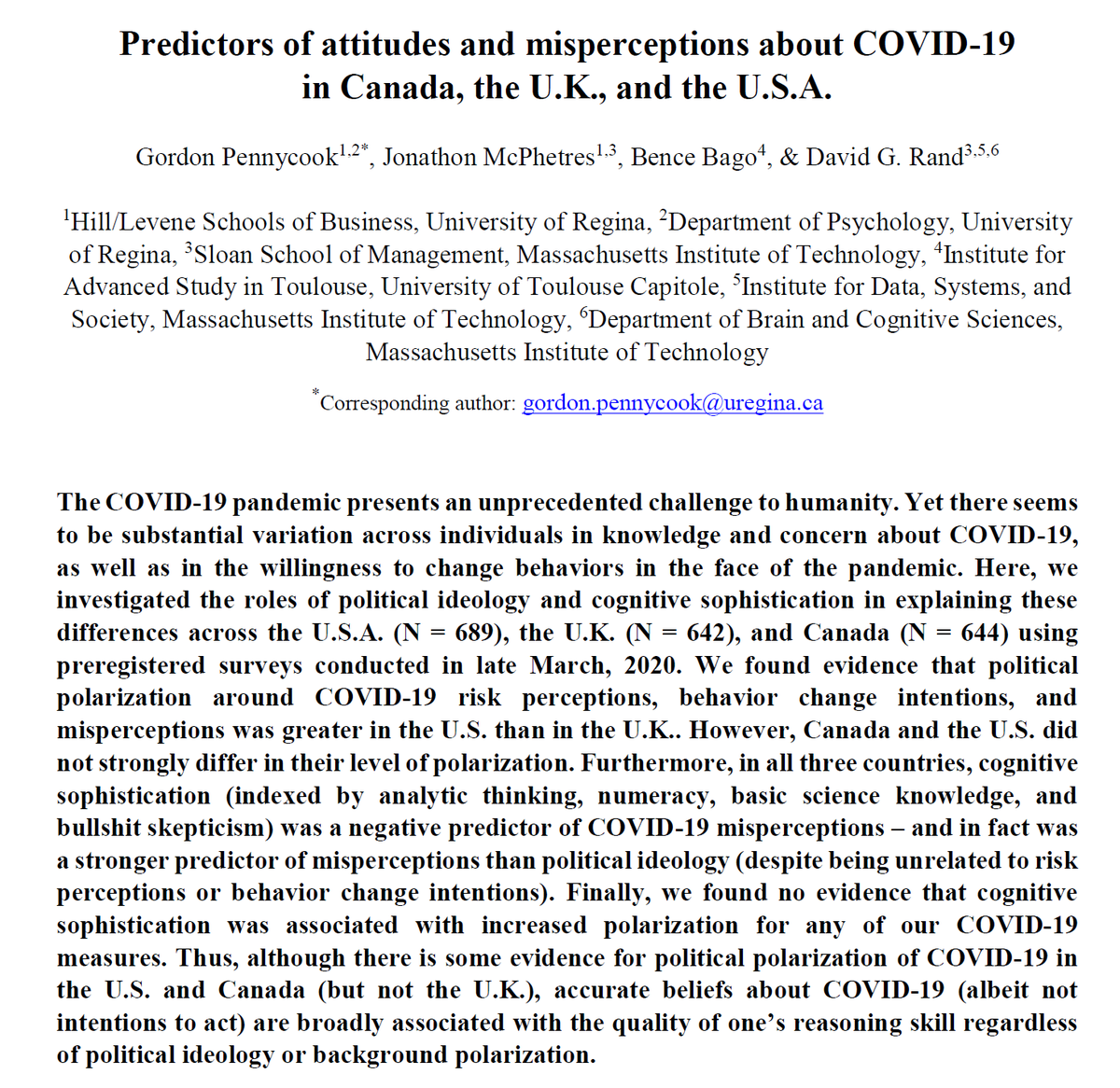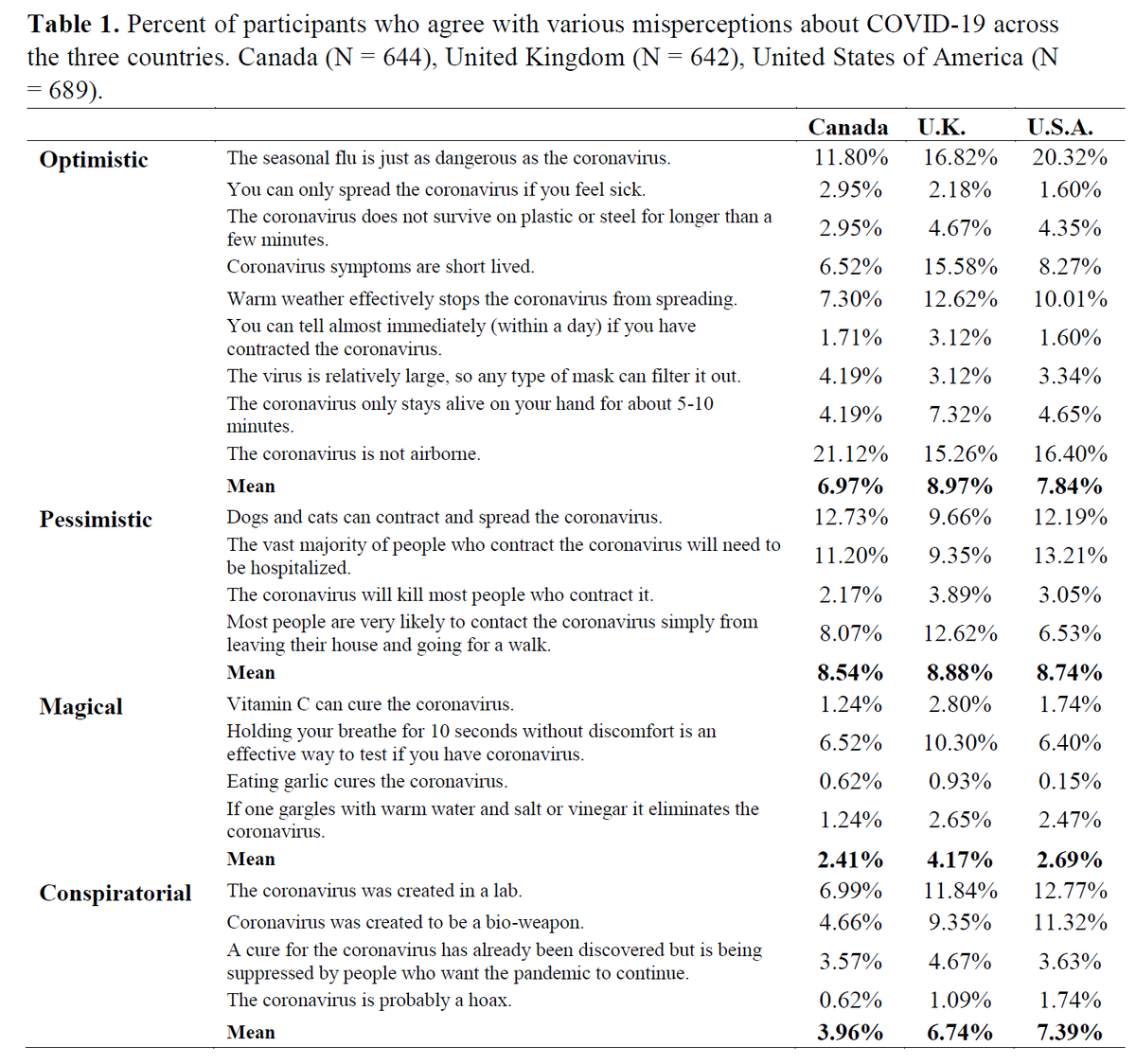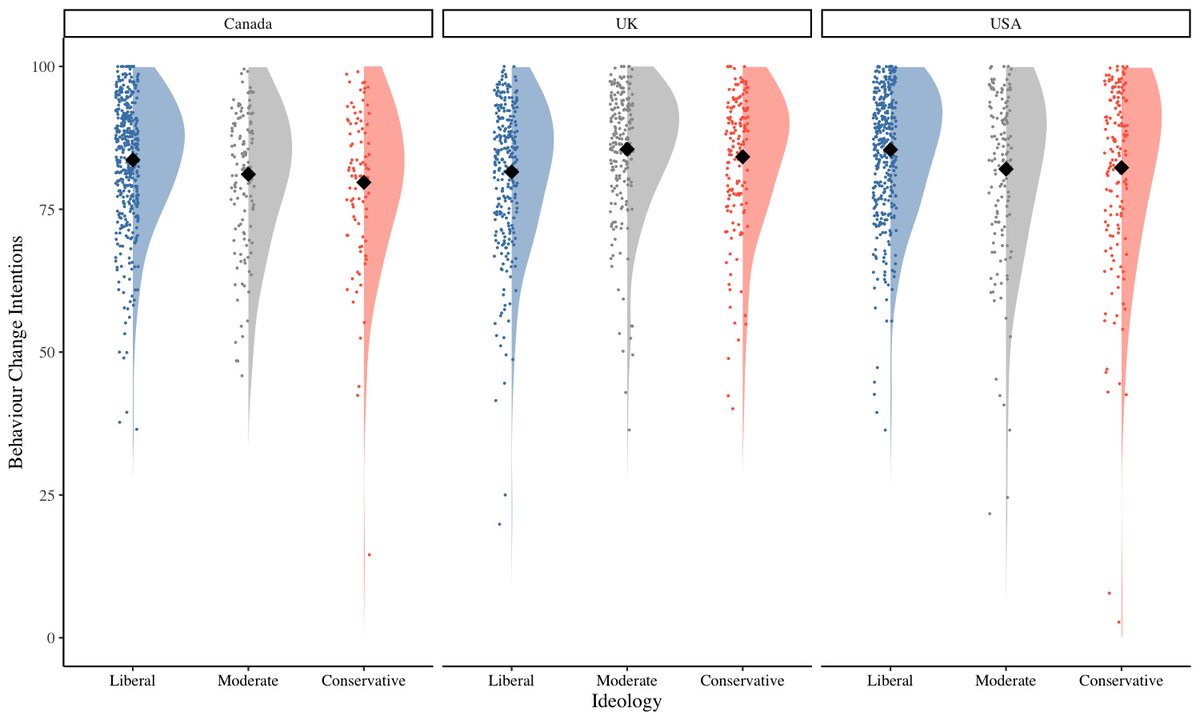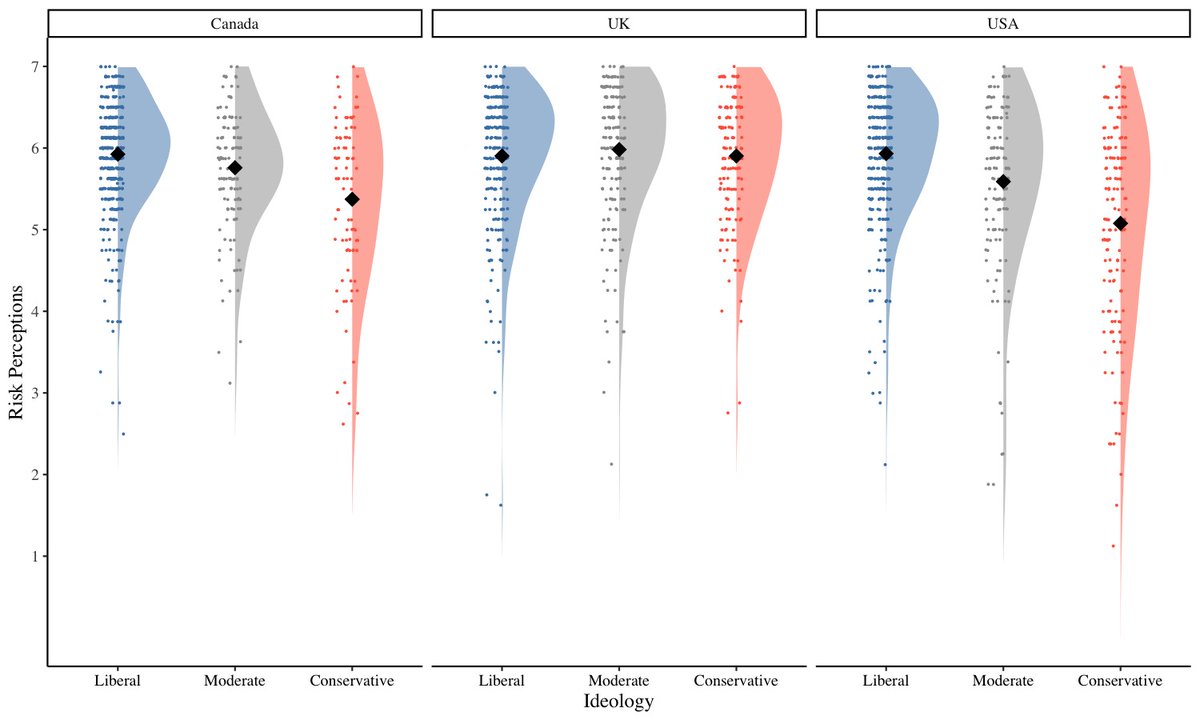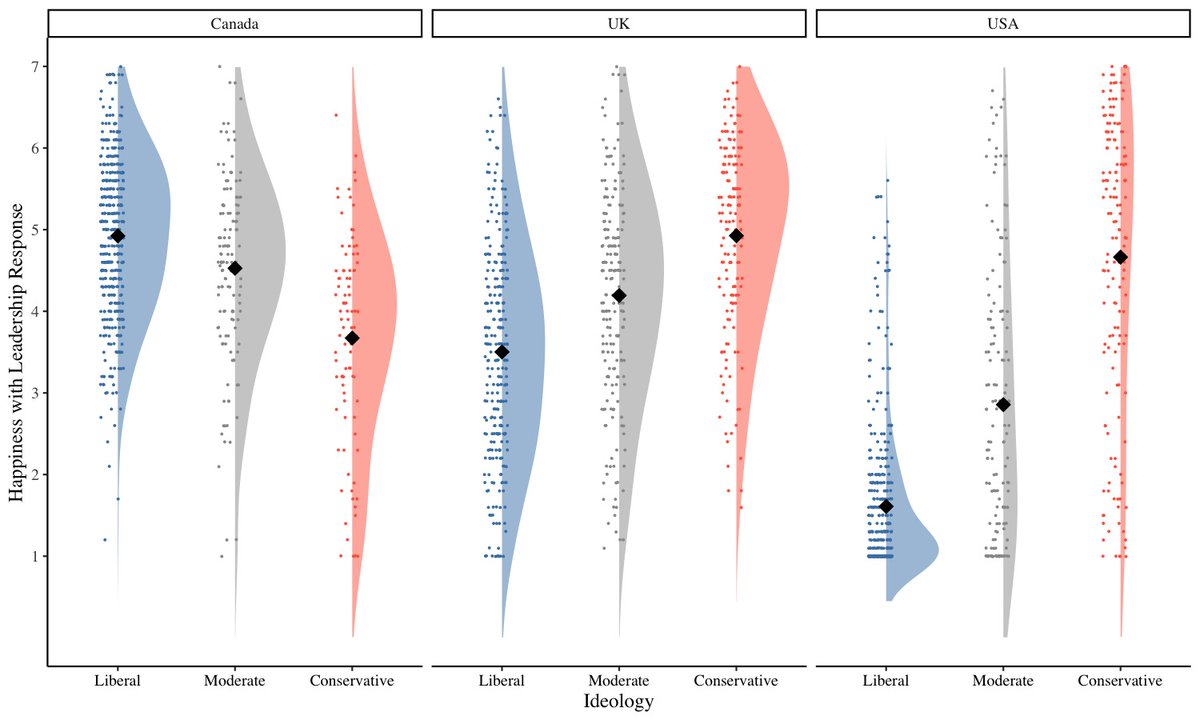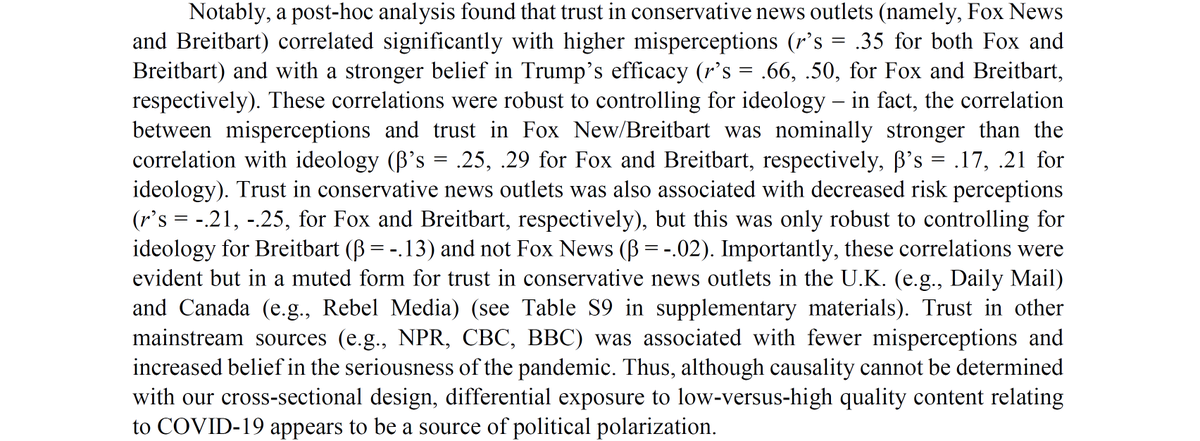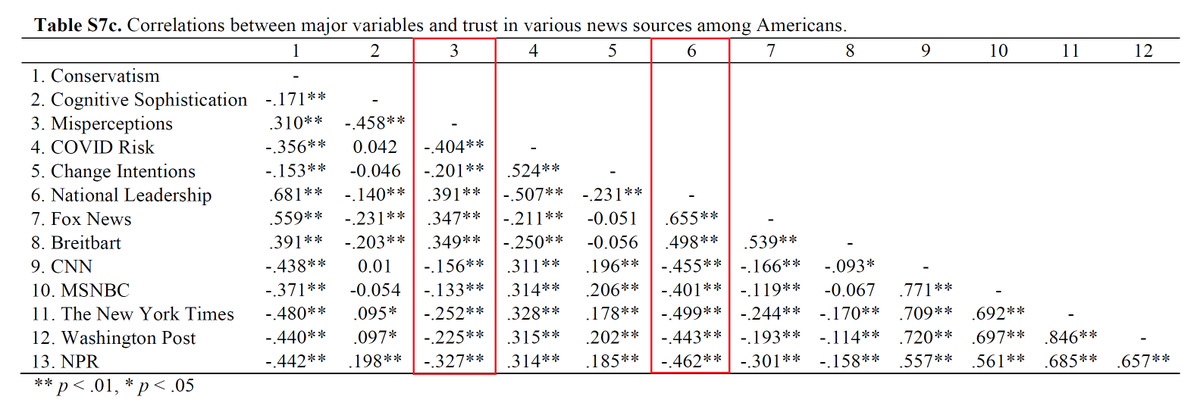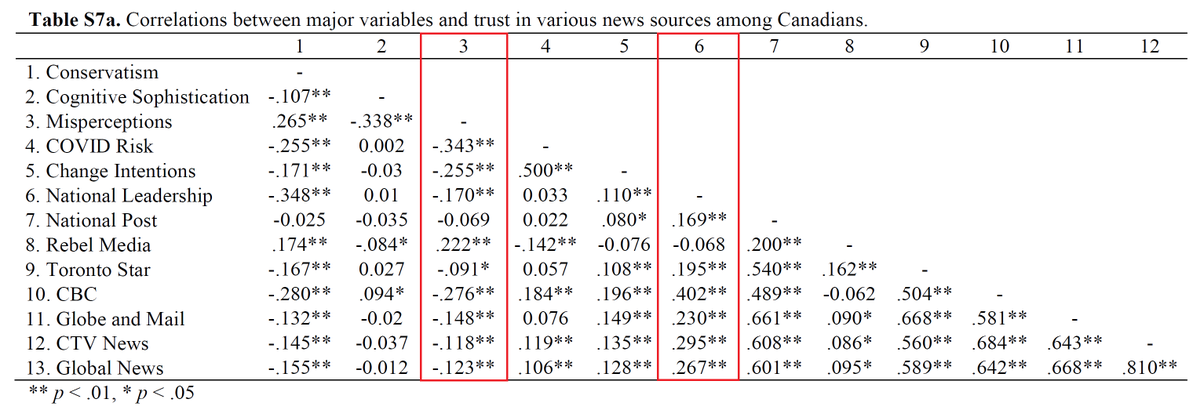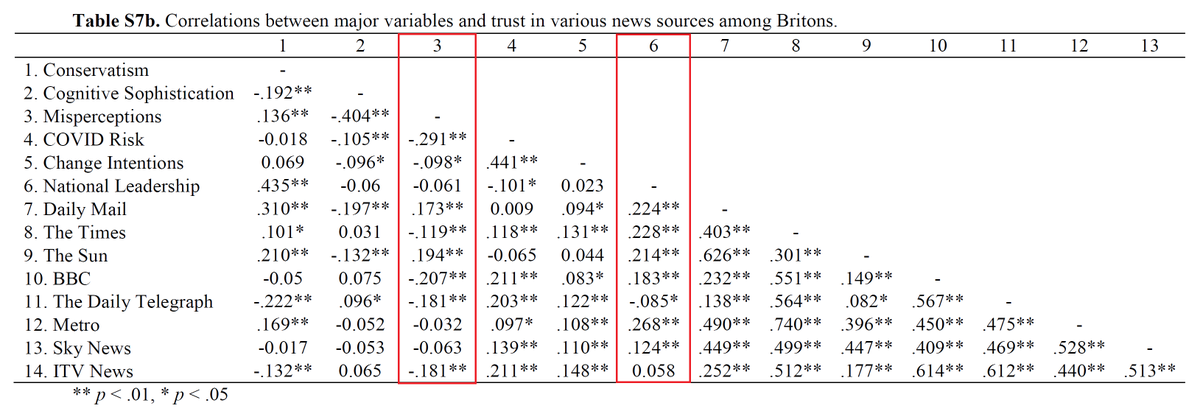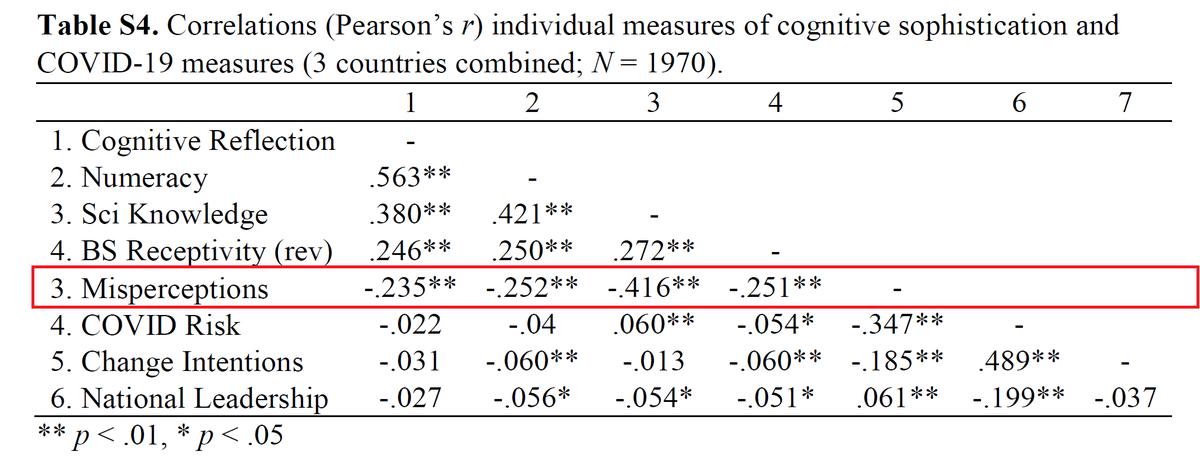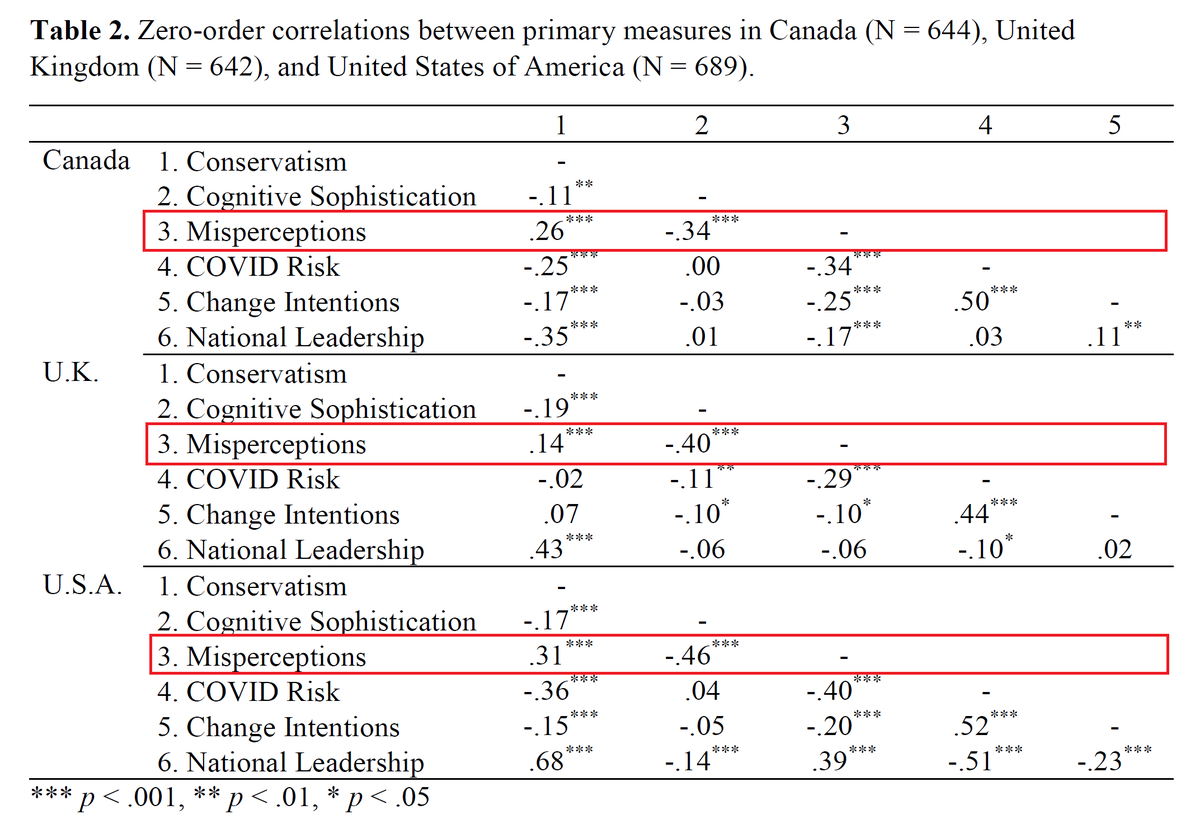New WP on attitudes about COVID-19! https://psyarxiv.com/zhjkp/ ">https://psyarxiv.com/zhjkp/&qu...
- Political polarization is stronger in the U.S. than U.K.
- But misperceptions are more strongly predicted by IQ than ideology (even in the U.S.)
- No evidence for politically motivated reasoning (even in the U.S.)
- Political polarization is stronger in the U.S. than U.K.
- But misperceptions are more strongly predicted by IQ than ideology (even in the U.S.)
- No evidence for politically motivated reasoning (even in the U.S.)
I know, I know-another paper on the coronavirus? Old news. Here& #39;s my pitch: There& #39;s been a sort of natural experiment where the same issue is undergoing different levels of politicization in the U.S. than related countries. IMO understanding the impact of this is super important
There& #39;s also a lot of super interesting data here. I& #39;ll go through some of the highlights in this thread. Study was run on March 24th. Samples are "representative" (based on Prolific& #39;s quota-sampling) in the U.S. and U.K., but not in Canada. Standard caveats apply.
Interestingly, the overall level of misperceptions is relatively low. However, ~20% of the American sample (and 35% of Republicans) believe the seasonal flu is just as dangerous as the coronavirus (compared to only 12% of polled Canada and 15% of Democrats).
Intentions to change behavior due to COVID-19 (e.g., washing hands more often) were quite high overall, but still somewhat lower among conservatives (relative to liberals) in the U.S. and Canada (but not in the U.K.)
Perceptions about the risk posed by COVID-19 (not to each individual, but in terms of the country itself) were notably lowest among Conservatives in the U.S. (but they were still mostly in agreement that there are risks)
The most polarized topic - and the place where the U.S. diverges the most from both the U.K. & Canada - is people& #39;s opinion about the efficacy of the respective leaders of their country (Trump, Johnson, Trudeau). Liberals and moderate think Trump is doing a very very bad job
Furthermore, misperceptions and opinions about Trump& #39;s effectiveness are quite strongly correlated with trust in Fox News and Breitbart (even after controlling for ideology). In contrast, trust in sources like NPR, NYT, and WashPo are associated with fewer misperceptions.
There are similar correlations - but in a much more muted form - for conservative news outlets in Canada (Rebel Media, but not National Post) and the U.K. (Daily Mail, The Sun). Trust in CBC (Canada) and BBC (U.K.) is most strongly associated with accurate COVID-19 beliefs.
We also looked into the cognitive factors that predict why people believe COVID-19 falsehoods. Cognitive reflection, numeracy, science knowledge, & bullshit receptivity all correlated with misperceptions. For simplicity, we created a composite "cognitive sophistication" measure..
In the U.S. and U.K., the cognitive sophistication composite was significantly more strongly correlated with misperceptions than political ideology! This difference was only marginal in Canada.
Finally, it is often argued that cognitive sophistication actually *increases* political polarization (e.g., because people who are smarter are just better at motivated reasoning). We find no evidence for this at all. I.e., no interactions between ideology & sophistication!
However, although cognitive sophistication was associated with misperceptions, it wasn& #39;t consistently associated with COVID-19 risk perceptions or behavior change intentions (although, obviously, misperceptions were associated with these things).
In conclusion, we have a lot to learn about the underlying psychology here. This is one attempt that we think is informative, but obviously attitudes about COVID-19 are a moving target (hence the need for continuing research on the topic!). Thanks for reading!

 Read on Twitter
Read on Twitter